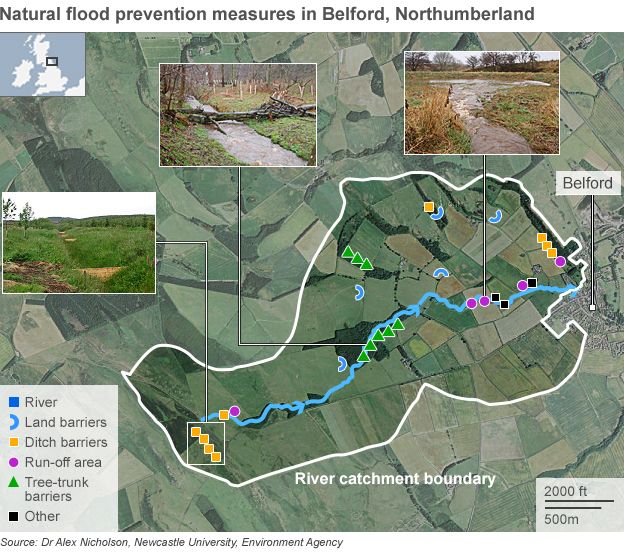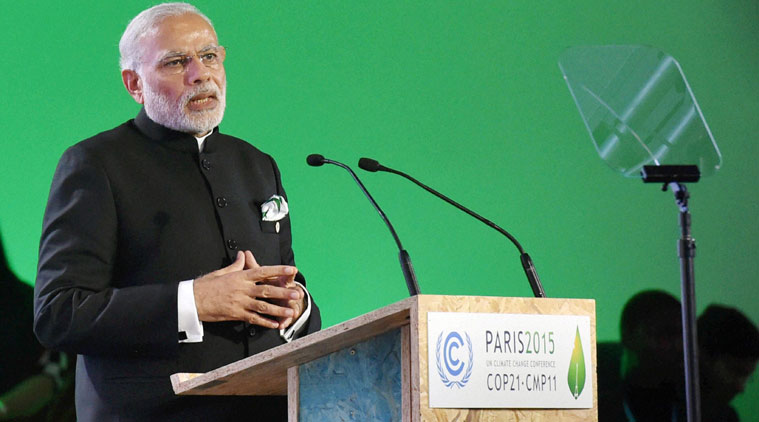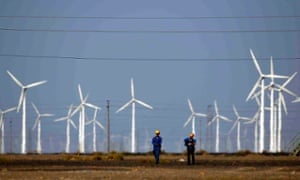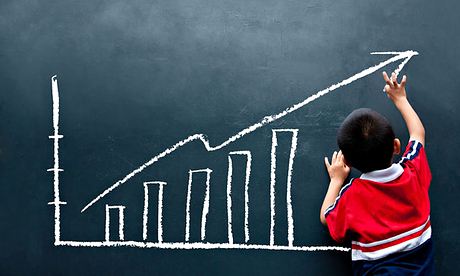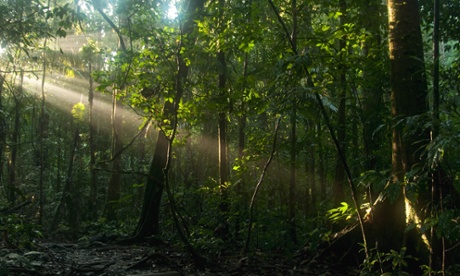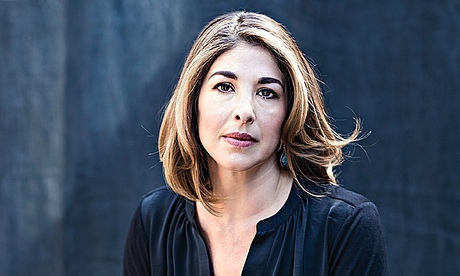
Naomi Klein: 'My doctor told me that my hormone levels were too low and that I'd probably miscarry, for the third time. My mind raced back to the Gulf.' Photograph: Anya Chibis for the Guardian
I denied climate change for longer than I care to admit. I knew it was happening, sure. But I stayed pretty hazy on the details and only skimmed most news stories. I told myself the science was too complicated and the environmentalists were dealing with it. And I continued to behave as if there was nothing wrong with the shiny card in my wallet attesting to my "elite" frequent-flyer status.
A great many of us engage in this kind of denial. We look for a split second and then we look away. Or maybe we do really look, but then we forget. We engage in this odd form of on-again-off-again ecological amnesia for perfectly rational reasons. We deny because we fear that letting in the full reality of this crisis will change everything.
And we are right. If we continue on our current path of allowing emissions to rise year after year, major cities will drown, ancient cultures will be swallowed by the seas; our children will spend much of their lives fleeing and recovering from vicious storms and extreme droughts. Yet we continue all the same.
What is wrong with us? I think the answer is far more simple than many have led us to believe: we have not done the things needed to cut emissions because those things fundamentally conflict with deregulated capitalism, the reigning ideology for the entire period we have struggled to find a way out of this crisis. We are stuck, because the actions that would give us the best chance of averting catastrophe – and benefit the vast majority – are threatening to an elite minority with a stranglehold over our economy, political process and media.
That problem might not have been insurmountable had it presented itself at another point in our history. But it is our collective misfortune that governments and scientists began talking seriously about radical cuts to greenhouse gas emissions in 1988 – the exact year that marked the dawning of "globalisation". The numbers are striking: in the 1990s, as the market integration project ramped up, global emissions were going up an average of 1% a year; by the 2000s, with "emerging markets" such as China fully integrated into the world economy, emissions growth had sped up disastrously, reaching 3.4% a year.
That rapid growth rate has continued, interrupted only briefly, in 2009, by the world financial crisis. What the climate needs now is a contraction in humanity's use of resources; what our economic model demands is unfettered expansion. Only one of these sets of rules can be changed, and it's not the laws of nature.
What gets me most are not the scary studies about melting glaciers, the ones I used to avoid. It's the books I read to my two-year-old. Looking For A Moose is one of his favourites. It's about a bunch of kids who really want to see a moose. They search high and low – through a forest, a swamp, in brambly bushes and up a mountain. (The joke is that there are moose hiding on each page.) In the end, the animals all come out and the ecstatic kids proclaim: "We've never ever seen so many moose!" On about the 75th reading, it suddenly hit me: he might never see a moose.
I went to my computer and began to write about my time in northern Alberta, Canadian tar sands country, where members of the Beaver Lake Cree Nation told me how the moose had changed. A woman killed one on a hunting trip, only to find the flesh had turned green. I heard a lot about strange tumours, which locals assumed had to do with the animals drinking water contaminated by tar sand toxins. But mostly I heard about how the moose were simply gone.
In our desire to deal with climate change without questioning the logic of growth, we've been eager to look both to technology and the market for saviours. And the world's celebrity billionaires have been happy to play their part.
In his autobiography/new age business manifesto Screw It, Let's Do It, Richard Branson shared the inside story of his road to Damascus conversion to the fight against climate change. It was 2006 and Al Gore, on tour with An Inconvenient Truth, came to the billionaire's home to impress upon him the dangers of global warming."It was quite an experience," Branson writes. "As I listened to Gore, I saw that we were looking at Armageddon."
As he tells it, his first move was to summon Will Whitehorn, then Virgin Group's corporate and brand development director. "We took the decision to change the way Virgin operates on a corporate and global level. We called this new approach Gaia Capitalism in honour of James Lovelock and his revolutionary scientific view" (this is that the Earth is "one single enormous living organism"). Not only would Gaia Capitalism "help Virgin to make a real difference in the next decade and not be ashamed to make money at the same time", but Branson believed it could become "a new way of doing business on a global level".

'For two years after I covered the 2010 BP spill in the Gulf of Mexico, I couldn't look at any body of water without imagining it covered in oil.' Illustration: Noma Bar for the Guardian
Before the year was out, he was ready to make his grand entrance on to the green scene (and he knows how to make an entrance – by parachute, by jetski, by kitesail with a naked model clinging to his back). At the 2006 Clinton Global Initiative annual meeting in New York, the highest power event on the philanthropic calendar, Branson pledged to spend $3bn over the next decade to develop biofuels as an alternative to oil and gas, and on other technologies to battle climate change. The sum alone was staggering, but the most elegant part was where the money would be coming from: Branson would divert the funds generated by Virgin's fossil fuel-burning transportation lines.
In short, he was volunteering to do precisely what our governments have been unwilling to legislate: channel the profits earned from warming the planet into the costly transition away from these dangerous energy sources. Bill Clinton was dazzled, calling the pledge "ground-breaking". But Branson wasn't finished: a year later, he was back with the Virgin Earth Challenge – a $25m prize for the first inventor to figure out how to sequester 1bn tonnes of carbon a year from the air "without countervailing harmful effects". And the best part, he said, is that if these competing geniuses crack the carbon code, the "'doom and gloom' scenario vanishes. We can carry on living our lives in a pretty normal way – we can drive our cars, fly our planes." The idea that we can solve the climate crisis without having to change our lifestyles – certainly not by taking fewer Virgin flights – seemed the underlying assumption of all Branson's initiatives. In 2009, he launched the Carbon War Room, an industry group looking for ways that different sectors could lower their emissions voluntarily, and save money in the process. For many mainstream greens, Branson seemed a dream come true: a media darling out to show the world that fossil fuel-intensive companies can lead the way to a green future, using profit as the most potent tool.
Bill Gates and former mayor of New York Michael Bloomberg have also used their philanthropy aggressively to shape climate solutions, the latter with large donations to green groups such as the Environmental Defense Fund, and with the supposedly enlightened climate policies he introduced as mayor. But while talking a good game about carbon bubbles and stranded assets, Bloomberg has made no discernible attempt to manage his own vast wealth in a manner that reflects these concerns. In fact, he helped set up Willett Advisors, a firm specialising in oil and gas assets, for both his personal and philanthropic holdings. Those gas assets may well have risen in value as a result of his environmental giving – what with, for example, EDF championing natural gas as a replacement for coal. Perhaps there is no connection between his philanthropic priorities and his decision to entrust his fortune to the oil and gas sector. But these investment choices raise uncomfortable questions about his status as a climate hero, as well as his 2014 appointment as a UN special envoy for cities and climate change (questions Bloomberg has not answered, despite my repeated requests).
Gates has a similar firewall between mouth and money. Though he professes great concern about climate change, the Gates Foundation had at least $1.2bn invested in oil giants BP and ExxonMobil as of December 2013, and those are only the start of his fossil fuel holdings. When he had his climate change epiphany, he, too, raced to the prospect of a silver-bullet techno-fix, without pausing to consider viable – if economically challenging – responses in the here and now. In Ted talks, op-eds, interviews and in hisannual letters, Gates repeats his call for governments massively to increase spending on research and development, with the goal of uncovering "energy miracles".
By miracles, he means nuclear reactors that have yet to be invented (he is a major investor and chairman of nuclear startup TerraPower), machines to suck carbon out of the atmosphere (he is a primary investor in at least one such prototype) and direct climate manipulation (Gates has spent millions funding research into schemes to block the sun, and his name is on several hurricane-suppression patents). At the same time, he has been dismissive of the potential of existing renewable technologies, writing off energy solutions such as rooftop solar as "cute" and "noneconomic" (these cute technologies already provide 25% of Germany's electricity).
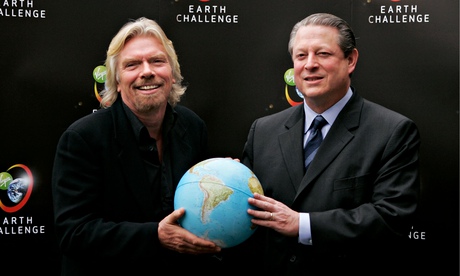
In 2006, after meeting Al Gore, Richard Branson pledged £3bn to battle climate change over the following decade. He has since spent just £230m. Photograph: Bruno Vincent/Getty Images
Almost a decade after Branson's epiphany, it seems a good time to check in on the "win-win" crusade. Let's start with his "firm commitment" to spending $3bn over a decade developing a miracle fuel. The first tranche of money he diverted from his transport divisions launched Virgin Fuels (since replaced by private equity firm Virgin Green Fund). He began by investing in various agrofuel businesses, including making a bet of $130m on corn ethanol. Virgin has attached its name to several biofuel pilot projects – one to derive jet fuel from eucalyptus trees, another from fermented gas waste – though it has not gone in as an investor. But Branson admits the miracle fuel "hasn't been invented yet" and the fund has since moved its focus to a grab-bag of green-tinged products.
Diversifying his holdings to get a piece of the green market would hardly seem to merit the fanfare inspired by Branson's original announcement, especially as the investments have been so unremarkable. If he is to fulfil his $3bn pledge by 2016, by this point at least $2bn should have been spent. He's not even close. According to Virgin Green Fund partner Evan Lovell, Virgin has contributed only around $100m to the pot, on top of the original ethanol investment, which brings the total Branson investment to around $230m. (Lovell confirmed that "we are the primary vehicle" for Branson's promise.)
Branson refused to answer my direct questions about how much he had spent, writing that "it's very hard to quantify the total amount… across the Group". His original "pledge" he now refers to as a "gesture". In 2009, he told Wired magazine, "in a sense, whether it's $2bn, $3bn or $4bn is not particularly relevant". When the deadline rolls around, he told me, "I suspect it will be less than $1bn right now" and blamed the shortfall on everything from high oil prices to the global financial crisis: "The world was quite different back in 2006… In the last eight years, our airlines have lost hundreds of millions of dollars."
Given these explanations for falling short, it is worth looking at some of the things for which Branson did manage to find money. In 2007, a year after seeing the climate light, he launched domestic airline Virgin America. From 40 flights a day to five destinations in its first year, it reached 177 flights a day to 23 destinations in 2013. At the same time, passengers on Virgin's Australian airlines increased from 15 million in 2007 to 19 million in 2012. In 2009, Branson launched a new long-haul airline, Virgin Australia; in April 2013 came Little Red, a British domestic airline.
So this is what he has done since his climate change pledge: gone on a procurement spree that has seen his airlines' greenhouse gas emissions soar by around 40%. And it's not just planes: Branson has unveiled Virgin Racing to compete in Formula One, (he claimed he had entered the sport only because he saw opportunities to make it greener, but quickly lost interest) and invested heavily in Virgin Galactic, his dream of launching commercial flights into space, for $250,000 per passenger. According to Fortune, by early 2013 Branson had spent "more than $200m" on this vanity project.
It can be argued – and some do – that Branson's planet-saviour persona is an elaborate attempt to avoid the kind of tough regulatory action that was on the horizon when he had his green conversion. In 2006, public concern about climate change was rising dramatically, particularly in the UK, where young activists used daring direct action to oppose new airports, as well as the proposed new runway at Heathrow. At the same time, the UK government was considering a broad bill that would hit the airline sector; Gordon Brown, then chancellor, had tried to discourage flying with a marginal rise in air passenger duty. These measures posed a significant threat to Branson's profit margins.
So, was Branson's reinvention as a guilt-ridden planet-wrecker volunteering to solve the climate crisis little more than a cynical ploy? All of a sudden, you could feel good about flying again – after all, the profits from that ticket to Barbados were going to help discover a miracle green fuel. It was an even more effective conscience-cleaner than carbon offsets (though Virgin sold those, too). As for regulations and taxes, who would want to hinder an airline supporting such a good cause? This was always Branson's argument: "If you hold industry back, we will not, as a nation, have the resources to come up with the clean-energy solutions we need." It is noteworthy that his green talk has been less voluble since David Cameron came to power and made it clear that fossil fuel-based businesses faced no serious threat of climate regulations.
There is a more charitable interpretation of what has gone wrong. This would grant Branson his love of nature (whether watching tropical birds on his private island or ballooning over the Himalayas) and credit him with genuinely trying to figure out ways to reconcile running carbon-intensive businesses with a desire to help slow species extinction and avert climate chaos. It would acknowledge, too, that he has thought up some creative mechanisms to try to channel profits into projects that could help keep the planet cool.
But if we grant him these good intentions, then the fact that all these projects have failed to yield results is all the more relevant. He set out to harness the profit motive to solve the crisis, but again and again, the demands of building a successful empire trumped the climate imperative.
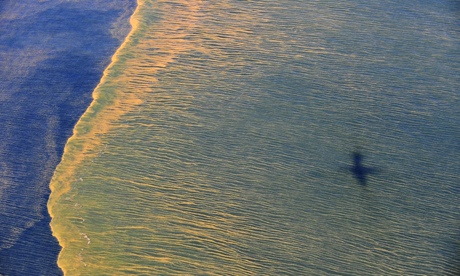
Oil on the surface of the Gulf of Mexico in an aerial view of the Deepwater Horizon oil spill off the coast of Mobile, Alabama. Photograph: Reuters
The idea that only capitalism can save the world from a crisis it created is no longer an abstract theory; it's a hypothesis that has been tested in the real world. We can now take a hard look at the results: at the green products shunted to the back of the supermarket shelves at the first signs of recession; at the venture capitalists who were meant to bankroll a parade of innovation but have come up far short; at the fraud-infested, boom-and-bust carbon market that has failed to cut emissions. And, most of all, at the billionaires who were going to invent a new form of enlightened capitalism but decided, on second thoughts, that the old one was just too profitable to surrender.
At some point about seven years ago, I realised I had become so convinced we were headed toward a grim ecological collapse that I was losing my capacity to enjoy my time in nature. The more beautiful the experience, the more I found myself grieving its loss – like someone unable to fall fully in love because she can't stop imagining the inevitable heartbreak. Looking out over British Columbia's Sunshine Coast, at an ocean bay teeming with life, I would suddenly picture it barren – the eagles, herons, seals and otters all gone. It got worse after I covered the 2010 BP spill in the Gulf of Mexico: for two years after, I couldn't look at any body of water without imagining it covered in oil.
This kind of ecological despair was a big part of why I resisted having kids until my late 30s. It was around the time that I began work on my book that my attitude started to shift. Some of it, no doubt, was standard-issue denial (what does one more kid matter?). But it was also that immersing myself in the international climate movement had helped me imagine various futures that were decidedly less bleak. And I was lucky: pregnant the first month we started trying. But then, just as fast, my luck ran out. A miscarriage. An ovarian tumour. A cancer scare. Surgery. Month after month of disappointing single pink lines on pregnancy tests. Another miscarriage.
It just so happened that the five years it took to write my book were the same years my personal life was occupied with failed pharmaceutical and technological interventions and, ultimately, pregnancy and new motherhood. I tried, at first, to keep these parallel journeys segregated, but it didn't always work. The worst part was the ceaseless invocation of our responsibilities to "our children". I knew these expressions were heartfelt and not meant to be exclusionary, yet I couldn't help feeling shut out.
But along the way, that feeling changed. It's not that I got in touch with my inner Earth Mother; it's that I started to notice that if the Earth is indeed our mother, then she is a mother facing a great many fertility challenges of her own.
I had no idea I was pregnant when I went to Louisiana to cover the BP spill. A few days after I got home, though, I could tell something was off and did a pregnancy test. Two lines this time, but the second strangely faint. "You can't be just a little bit pregnant," the saying goes. And yet that is what I seemed to be. After more tests, my doctor told me my hormone levels were much too low and I'd probably miscarry, for the third time. My mind raced back to the Gulf – the toxic fumes I had breathed in for days and the contaminated water I had waded in. I searched on the chemicals BP was using in huge quantities, and found reams of online chatter linking them to miscarriages. Whatever was happening, I had no doubt that it was my doing.
After a week of monitoring, the pregnancy was diagnosed as ectopic - the embryo had implanted itself outside the uterus, most likely in a fallopian tube. I was rushed to the emergency room. The somewhat creepy treatment is one or more injections of methotrexate, a drug used in chemotherapy to arrest cell development (and carrying many of the side-effects). Once foetal development has stopped, the pregnancy miscarries, but it can take weeks.
It was a tough, drawn-out loss for my husband and me. But it was also a relief to learn that the miscarriage had nothing to do with the Gulf. Knowing that did make me think a little differently about my time covering the spill, however. As I waited for the pregnancy to "resolve", I thought in particular about a long day spent on the Flounder Pounder, a boat a group of us had chartered to look for evidence that the oil had entered the marshlands.
Our guide was Jonathan Henderson of the Gulf Restoration Network, a heroic local organisation devoted to repairing the damage done to the wetlands by the oil and gas industry. As we navigated the narrow bayous of the Mississippi Delta, Henderson leant far over the side to get a better look at the bright green grass. What concerned him most was not what we were all seeing – fish jumping in fouled water, Roseau cane coated in oil – but something much harder to detect without a microscope and sample jars.
Spring is the start of spawning season on the Gulf Coast, and Henderson knew these marshes were teeming with nearly invisible zooplankton and tiny juveniles that would develop into adult shrimp, oysters, crabs and fin fish. In these fragile weeks, the marsh grass acts as an aquatic incubator, providing nutrients and protection from predators. "Everything is born in these wetlands," he said.
The prospects for these microscopic creatures did not look good. Each wave brought in more oil and dispersants, sending levels of carcinogenic polycyclic aromatic hydrocarbons (PAHs) soaring. And this was all happening at the worst possible moment in the biological calendar: not only shellfish, but also bluefin tuna, grouper, snapper, mackerel, marlin and swordfish were all spawning. Out in the open water, floating clouds of translucent proto-life were just waiting for one of the countless plumes of oil and dispersants to pass through them like an angel of death. Unlike the oil-coated pelicans and sea turtles, these deaths would attract no media attention, just as they would go uncounted in official assessments of the spill's damage. If a certain species of larva was in the process of being snuffed out, we would likely not find out about it for years, and then, rather than some camera-ready mass die-off, there would just be… nothing. An absence. A hole in the life cycle.
As our boat rocked in that terrible place – the sky buzzing with Black Hawk helicopters and snowy white egrets – I had the distinct feeling we were suspended not in water but in amniotic fluid, immersed in a massive multi-species miscarriage. When I learned that I, too, was in the early stages of creating an ill-fated embryo, I started to think of that time in the marsh as my miscarriage inside a miscarriage. It was then that I let go of the idea that infertility made me some sort of exile from nature, and began to feel what I can only describe as a kinship of the infertile.
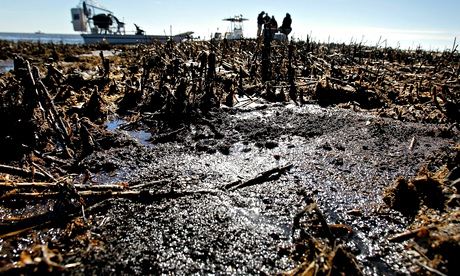
Oil is deposited along dead marsh land near Bay Jimmy in Port Sulphur, Louisiana, in January 2011, 10 months after the spill. The clean-up is ongoing. Photograph: Getty Images
A few months after I stopped going to the fertility clinic, a friend recommended a naturopathic doctor. This practitioner had her own theories about why so many women without an obvious medical reason were having trouble conceiving. Carrying a baby is one of the hardest physical tasks we can ask of ourselves, she said, and if our bodies decline the task, it is often a sign that they are facing too many other demands – high-stress work, or the physical stress of having to metabolise toxins, or just the stresses of modern life. Most fertility clinics use drugs and technology to override this, and they work for a lot of people. But if they do not (and they often do not), women are frequently left even more stressed, their hormones more out of whack. The naturopath proposed the opposite approach: try to figure out what might be overtaxing my system, and then remove those things. After a series of tests, I was diagnosed with a whole mess of allergies I didn't know I had, as well as adrenal insufficiency and low cortisol levels. The doctor asked me a lot of questions, including how many hours I had spent in the air over the past year. "Why?" I asked warily. "Because of the radiation. There have been some studies done with flight attendants that show it might not be good for fertility."
I admit I was far from convinced that this approach would result in a pregnancy, or even that the science behind it was wholly sound. Then again, the worst that could happen was that I'd end up healthier. So I did it all. The yoga, the meditation, the dietary changes (the usual wars on wheat, gluten, dairy and sugar, as well as more esoteric odds and ends). I went to acupuncture and drank bitter Chinese herbs; my kitchen counter became a gallery of powders and supplements. I left Toronto and moved to rural British Columbia. This is the part of the world where my parents live, where my grandparents are buried.
Gradually, I learned to identify a half-dozen birds by sound, and sea mammals by the ripples on the water's surface. My frequent-flyer status expired for the first time in a decade, and I was glad.
For the first few months, the hardest part of the pregnancy was believing everything was normal. No matter how many tests came back with reassuring results, I stayed braced for tragedy. What helped most was hiking, and during the final anxious weeks, I would calm my nerves by walking for as long as my sore hips would let me on a trail along a pristine creek. I kept my eyes open for silvery salmon smolts making their journey to the sea after months of incubation in shallow estuaries. And I would picture the cohos, pinks and chums battling the rapids and falls, determined to reach the spawning grounds where they were born. This was my son's determination, I would tell myself. He was clearly a fighter, having managed to make his way to me despite the odds; he would find a way to be born safely, too.
I don't know why this pregnancy succeeded any more than I know why earlier pregnancies failed – and neither do my doctors. Infertility is just one of the many areas in which we humans are confronted with our oceans of ignorance. So, mostly, I feel lucky.
And I suppose a part of me is still in that oiled Louisiana marsh, floating in a sea of poisoned larvae and embryos, with my own ill-fated embryo inside me. It's not self-pity that keeps me returning to that sad place. It's the conviction that there is something valuable in the body-memory of slamming up against a biological limit – of running out of chances – something we all need to learn. We are built to survive, gifted with adrenaline and embedded with multiple biological redundancies that allow us the luxury of second, third and fourth chances. So are our oceans. So is the atmosphere.
But surviving is not the same as thriving, not the same as living well. For a great many species, it's not the same as being able to nurture and produce new life. With proper care, we stretch and bend amazingly well. But we break, too – our individual bodies, as well as the communities and ecosystems that support us.
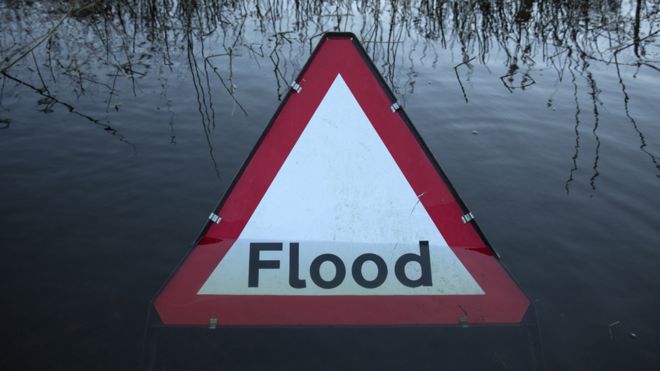 Image copyrightGetty Images
Image copyrightGetty Images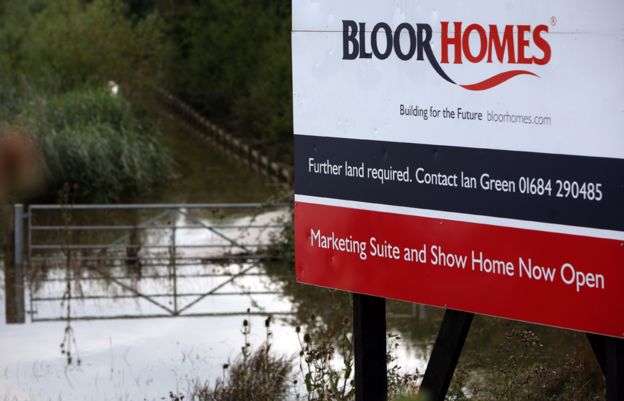 Image copyrightGetty Images
Image copyrightGetty Images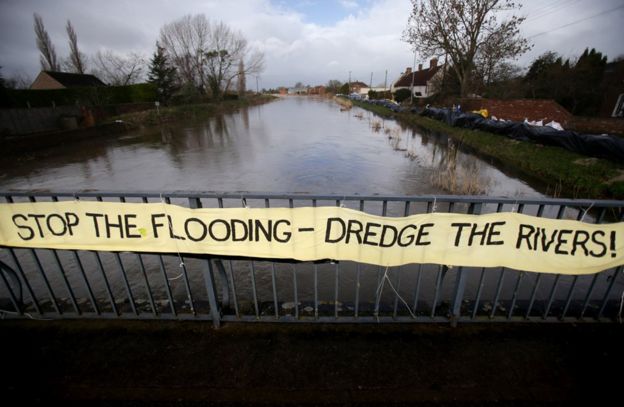 Image copyrightGetty Images
Image copyrightGetty Images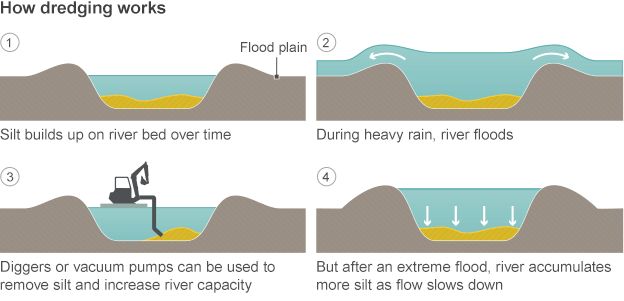
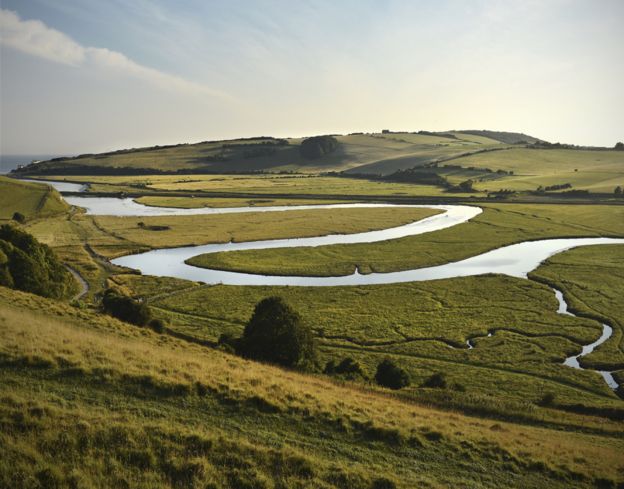 Image copyrightiStock
Image copyrightiStock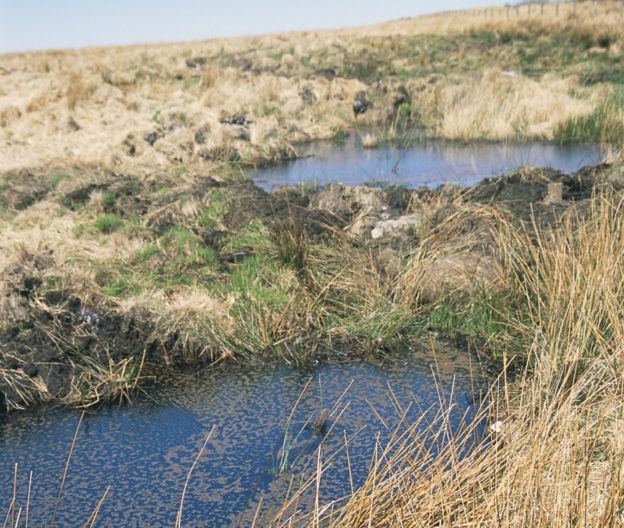 Image copyrightScience Photo Library
Image copyrightScience Photo Library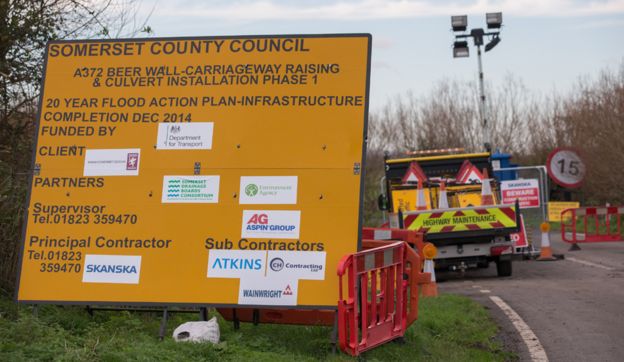 Image copyrightGetty Images
Image copyrightGetty Images